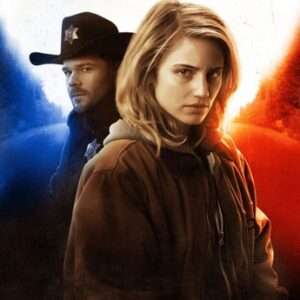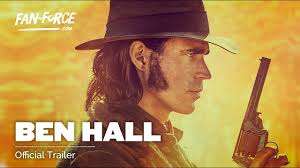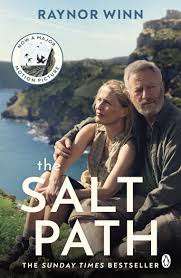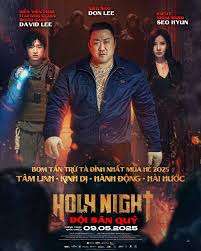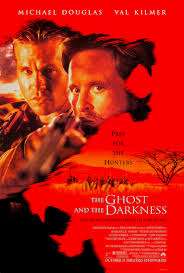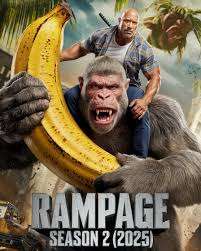Created by Nic Pizzolatto | Directed by Cary Joji Fukunaga | Starring Matthew McConaughey, Woody Harrelson
When True Detective premiered on HBO in 2014 (its production began in 2013), it didn’t just add another crime drama to the TV landscape — it reshaped what prestige television could look like. This self-contained first season, created and written by Nic Pizzolatto and directed entirely by Cary Joji Fukunaga, was an atmospheric descent into the American South’s psychological and philosophical underbelly. Gritty, cerebral, and poetic, True Detective Season 1 stands as one of the greatest single-season achievements in TV history.
The Story
The first season follows two Louisiana State Police detectives, Rustin “Rust” Cohle (Matthew McConaughey) and Martin “Marty” Hart (Woody Harrelson), over the course of 17 years as they hunt a serial killer whose crimes are steeped in occult symbolism and ritual. The narrative cuts between their original investigation in 1995 and interviews in 2012, where both men are questioned about a similar recent killing that mirrors their past case — suggesting that their original conclusion may have missed something darker, and more widespread.
At its surface, True Detective plays like a Southern Gothic police procedural. But beneath that is something far richer and more unsettling: a philosophical examination of time, identity, evil, and the thin membrane between civility and chaos.
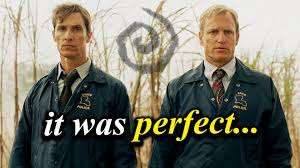
Performances That Redefine Expectations
McConaughey and Harrelson deliver the performances of their careers. McConaughey’s Rust Cohle is unforgettable — a haunted, chain-smoking nihilist whose musings on existence and morality sound like they’ve been pulled from a graduate philosophy seminar. Yet, despite his bleak worldview, Cohle becomes the heart of the series. His sharp mind and emotional decay form the core of the show’s moral weight.
Harrelson’s Marty Hart, the more conventional of the two at first glance, adds necessary contrast. Marty’s flaws — infidelity, hypocrisy, rage — reflect a more socially acceptable but equally damaging brokenness. Harrelson plays him with a complexity that builds over time, slowly unraveling the veneer of a family man and revealing someone just as damaged as his partner.
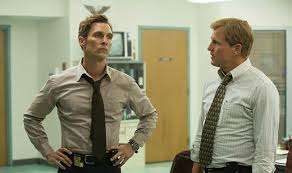
Together, they form a classic yet elevated odd-couple dynamic. The tension between them, rooted in worldview and personal choices, is as gripping as the murder mystery. Every scene they share crackles with electricity.
Direction and Cinematography
Cary Joji Fukunaga’s direction elevates True Detective from a well-written drama to a visual and tonal masterpiece. The decision to have one director helm all eight episodes creates a stylistic unity rarely seen in television. Fukunaga’s camera lingers in swampy decay, grimy motels, and smoke-filled interrogation rooms. The Louisiana setting becomes a character itself — haunting, forgotten, and bubbling with menace.
One of the most talked-about sequences in the season is Episode 4’s six-minute tracking shot — an unbroken take following Cohle through a night raid gone wrong. It’s technically masterful, suspenseful, and serves a narrative purpose without feeling flashy.
Adam Arkapaw’s cinematography is equally essential, using light and shadow to mirror the story’s psychological depth. The wide, quiet landscapes give the series a mythic feel — this isn’t just a crime being solved; it’s a descent into America’s unconscious.
Writing and Dialogue
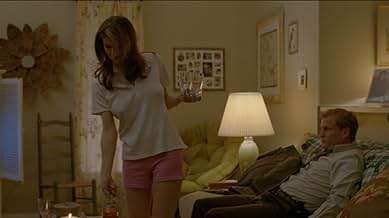
Nic Pizzolatto’s script is dense with philosophical dialogue, literary allusions, and symbolic layers. Cohle’s lines — monologues about eternal recurrence, the illusion of self, and the pointlessness of consciousness — might have felt pretentious in lesser hands. But here, they’re haunting and hypnotic.
Some viewers found the writing too lofty or overwritten. But for many, that was part of the allure. True Detective doesn’t dumb itself down. It demands attention, patience, and thought. The occult references, from the Yellow King to Carcosa, hint at Lovecraftian horror, but the real horror lies in what people are capable of — not monsters, but men hiding in plain sight.
The narrative structure — jumping between decades, slowly unspooling secrets — is masterfully handled. It balances the momentum of a whodunit with the introspection of a character study. The result is a show that works both as a gripping mystery and a meditation on human nature.
Themes and Subtext
At its core, True Detective is about time. “Time is a flat circle,” Cohle famously says — and the series explores this idea not just philosophically but structurally. Characters don’t escape their pasts. Trauma echoes across decades. Mistakes loop back on themselves. The storytelling style, intercutting timelines, mimics this recurrence.
There’s also a deep examination of masculinity, morality, and decay. Hart represents the classic image of manhood: tough, controlling, emotionally closed off. Cohle, by contrast, is introspective, isolated, and confrontationally honest. Both are punished for their flaws in different ways. The women in the series, notably Michelle Monaghan’s Maggie Hart, are often relegated to background roles — a valid criticism — yet Maggie’s decisions shift the story’s course dramatically.
The killer they pursue represents not just a man, but an institutional rot — a system that hides evil rather than eradicating it. That systemic darkness is what haunts the show the most.
Music and Atmosphere
The soundtrack — curated by T Bone Burnett — deserves special mention. The opening credits set the tone perfectly with The Handsome Family’s “Far From Any Road,” a haunting country-gothic ballad overlaid with images of fire, smoke, and ghostly Southern iconography.
Each musical cue is intentional, often subtle, always evocative. The soundscape contributes to the show’s mood — eerie, mournful, and apocalyptic.
Impact and Legacy
True Detective Season 1 was a cultural phenomenon. It sparked endless theories, think pieces, and a revival of interest in cosmic horror and literary noir. It also changed the way television was made — paving the way for more creator-driven limited series with cinematic ambitions.
Later seasons of True Detective (each with new characters and stories) would struggle to live up to the first, though Season 3 regained some of the original magic. But none have quite matched the alchemy of McConaughey, Harrelson, Pizzolatto, and Fukunaga.
Criticisms
No show is without flaws. Some critics pointed to the underdevelopment of female characters, a recurring issue in noir fiction. Others felt the ending — while emotionally satisfying — didn’t tie up all the symbolic and conspiratorial threads that had been teased throughout the season.
Still, these minor stumbles don’t undermine the power of the whole. The show’s emotional core remains strong, and its final message — that even in the darkest darkness, there might be some light — lands with earned weight.
Final Verdict
True Detective Season 1 is a rare example of a show firing on all cylinders — performance, direction, writing, and atmosphere all working in perfect harmony. It’s an unforgettable journey into the heart of darkness, and a benchmark for serialized storytelling. Gritty, poetic, and deeply unsettling, this is not just a great crime drama — it’s great television.
Rating: 10/10
An atmospheric masterpiece. A brooding, philosophical thriller that redefined the modern crime drama.
